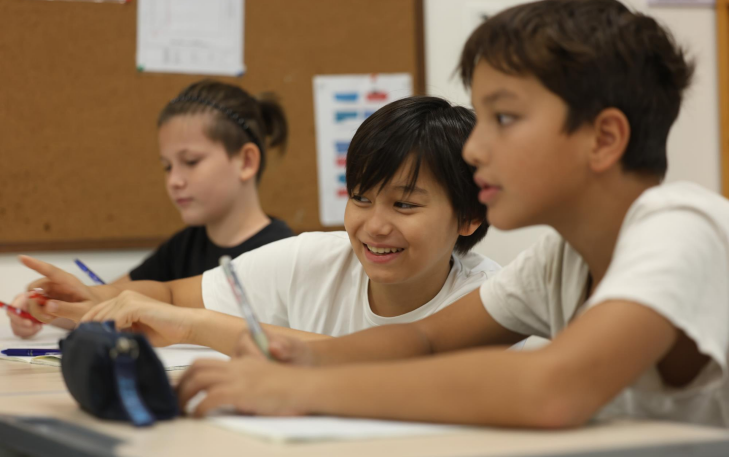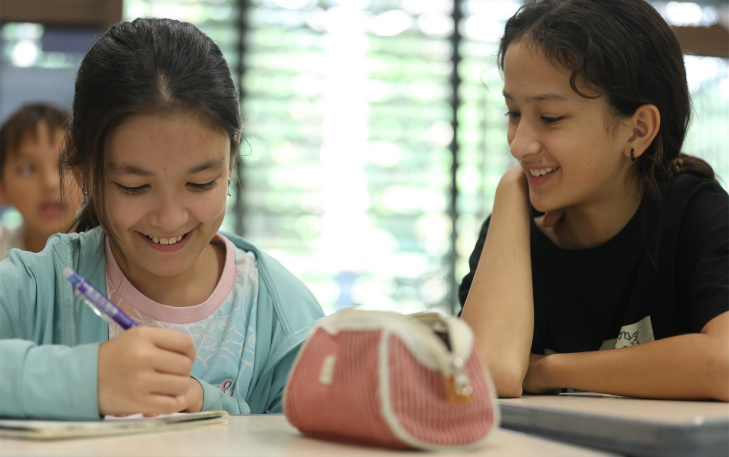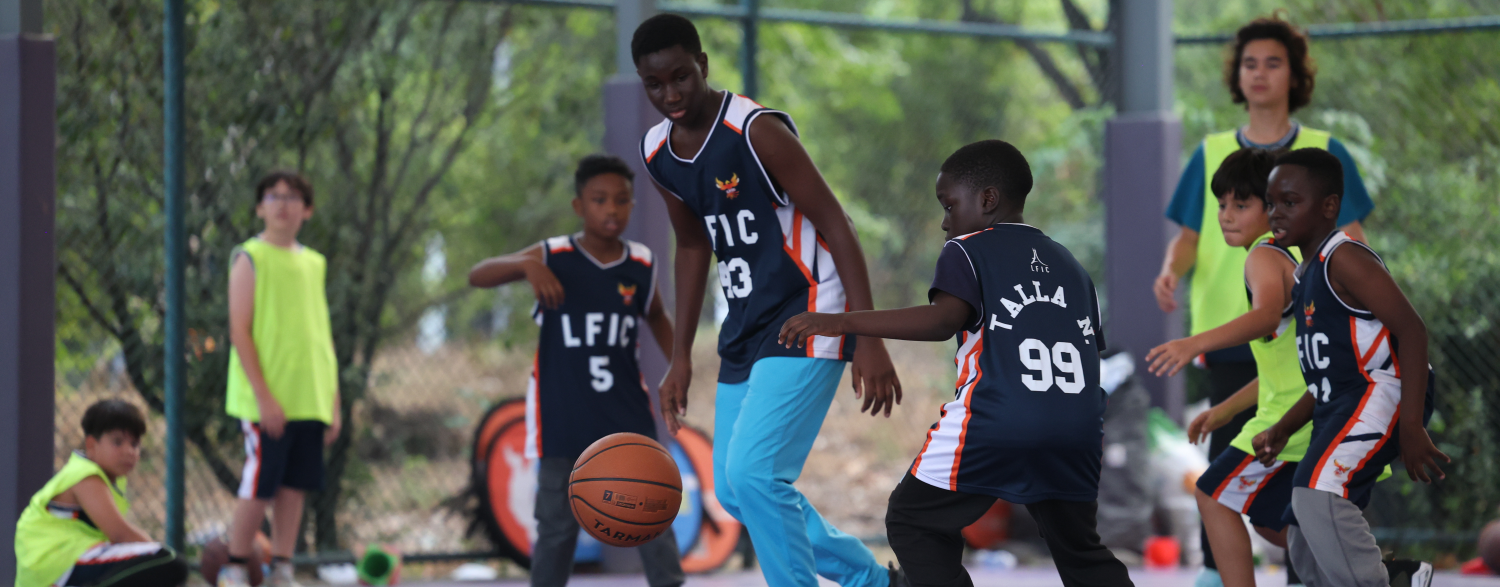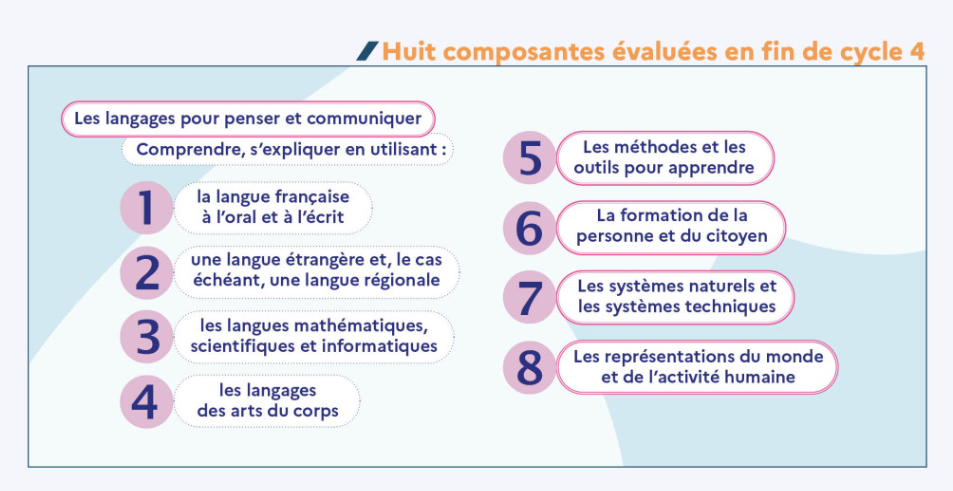

Lower secondary school
The lower secondary school marks students’ entry into secondary education. It is organized into four levels from Grade 6 to Grade 9(6e to 3e) and structured into educational cycles.
Compulsory subjects include common subjects and related supplementary subjects (hours of support devoted to mastering basic knowledge for pupils in serious difficulty, homework support for pupils in Grade 6, personalized support in Grade 8 and 9 and interdisciplinary practical subjects for the 4 levels of lower secondary school).
 |
 |
Optional subjects may be offered to willing pupils, including the introduction of a second modern language from Grade 6, ancient languages and cultures, regional languages and cultures, choral singing and European languages and cultures.
The aim of discovering careers is to give pupils a better understanding of how the world of work works, to deepen their knowledge of the different sectors of activity and the careers associated with them, to appreciate the prospects and to guard against representations marked by gender and social stereotypes. Since the start of the 2023 academic year, all lower secondary schools of French have been offering career discovery activities to pupils at all or part of the three levels of cycle 4 (Grades 7, 8, and 9).

Mastering the Common Base of Knowledge, Skills and Culture to a satisfactory level guarantees the knowledge and skills needed to continue at school. This level is not restrictive, and each pupil may aim to achieve a very high level of mastery.
An assessment is drawn up at least at the end of each cycle, based on the evaluation of knowledge and skills. A skill is the ability to mobilize resources (knowledge, skills, attitudes) to accomplish a task or deal with a complex or novel situation. Developing skills thus goes further than acquiring knowledge, while building on it.
Mastery of the Common Base of Knowledge, Skills and Culture is assessed for each of the five areas of learning: languages for thinking and communicating; methods and tools for learning; the education of the individual and the citizen; natural and technical systems; representations of the world and human activity, etc.
The first domain, languages for thinking and communicating, must be assessed separately for its four objectives: understanding and explaining oneself using the French language, both orally and in writing; understanding and explaining oneself using a foreign language and, where appropriate, a regional language; understanding and explaining oneself using mathematical, scientific and computer languages; understanding and explaining oneself using the languages of the arts and the body.
There are therefore eight components that are assessed at the end of cycle 4:

The notion of an educational pathway thus incorporates the idea of a gradual acquisition of knowledge and skills that is built up throughout a pupil's school career.
At the lower secondary school, there are four educational pathways:
To find out more about the programmes :
https://www.education.gouv.fr/les-programmes-du-college-3203